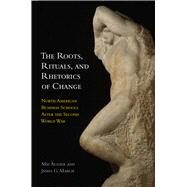- ISBN: 9780804776165 | 0804776164
- Cover: Hardcover
- Copyright: 8/10/2011
Some rather remarkable changes took place in North American business schools between 1945 and 1970, altering the character of these institutions, the possibilities for their future, and the terms of discourse about them. This period represents a minor revolution, during which business schools became more academic, more analytic, and more quantitative. The Roots, Rituals, and Rhetorics of Changeconsiders these changes and explores their roots. It traces the origins of this quiet revolution to a diffuse community of like-mindedness forged by the depression and the Second World War, the reform of medical schools after the Flexner Report, the ideology of intellectuality championed by Robert Maynard Hutchins at the University of Chicago, and the experience of interdisciplinary collaboration at the RAND Corporation. It shows how these roots shaped discussions about management education and led to a shift in the rhetorical balance that weakened the place of business cases and experiential knowledge and strengthened support for a concept of professionalism that applied to management. The text considers at least three core questions: Should business schools concern themselves primarily with experiential knowledge or with academic knowledge? What vision of managers and management should be reflected by business schools? Finally, how does managerial education connect its teaching to some version of reality?






